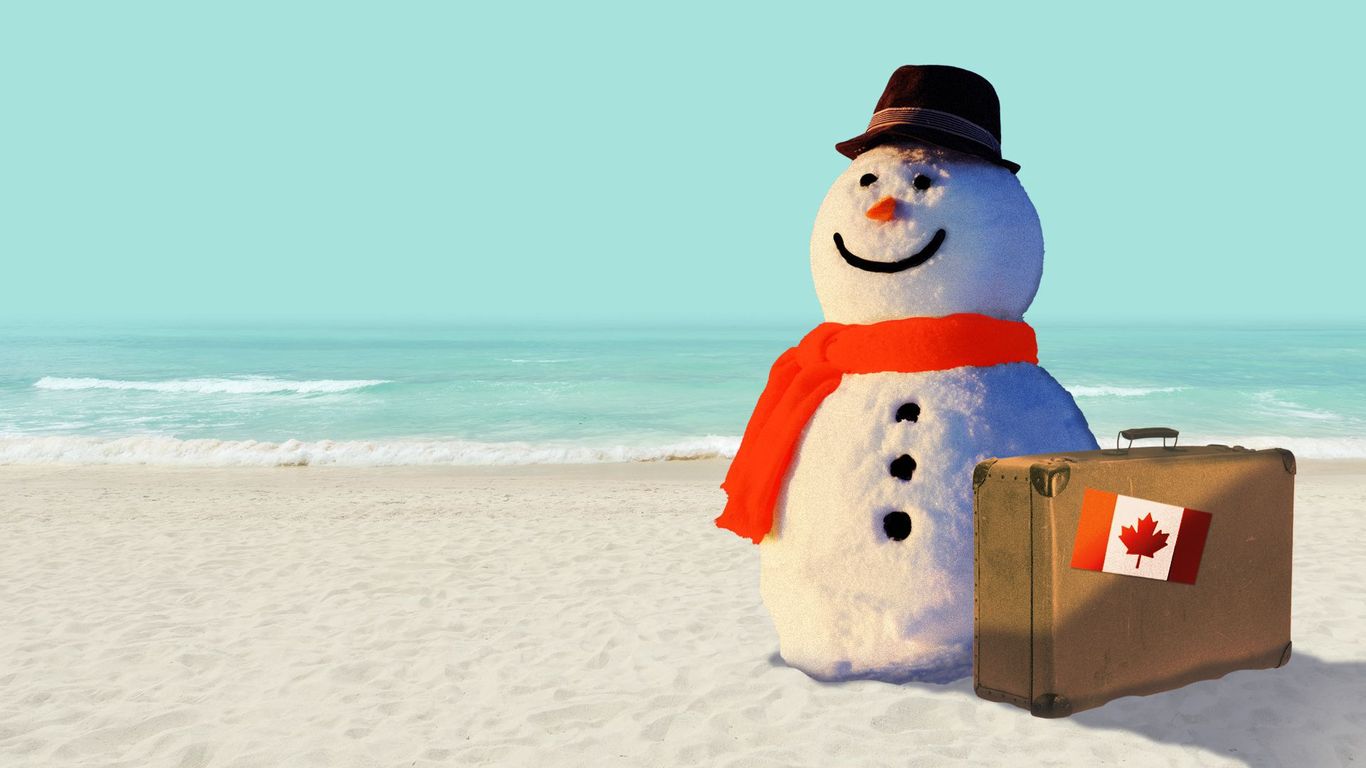Some Canadians are ditching their winter homes in the U.S. as tensions between the two countries simmer.
Why it matters: President Trump's tariffs and taunts may be the last straw for snowbirds who are already finding it more expensive to live south of the border, real estate agents say.What we're hearing: "My Canadian sellers are worried. They feel like they have to take a break from the U.

S. for now and see where it goes," Alexandra DuPont, a broker who helps snowbirds buy and sell condos in Florida, tells Axios.She's working with about 35 Canadian sellers — more than three times the usual for this time of year — and no buyers.
The big picture: America's northern neighbors make up 11% of foreign homebuyers on average over the past decade, according to National Association of Realtors data shared with Axios.Florida attracts the most Canadian buyers, followed by Arizona and California.Between the lines: The recent friction with Canada, including Trump's trade drama and talk of annexation, comes as the Canadian dollar weakens against the U.
S. dollar.Meanwhile, homeowners association fees and insurance costs have surged, especially in Florida.
Snowbirds are also rattled by the Trump administration's move to require Canadians staying in the U.S. for longer than 30 days to register with immigration authorities, says DuPont, who has dual citizenship.
What they're saying: "We are done for a while," Martin Buck, a Canadian who sold his family's Arizona vacation home just before Trump was sworn in, told the Vancouver Sun.What to watch: Florida real estate agent Catherine Spino told CBS12 News that some of her Canadian clients are looking to spend their winters elsewhere, like Mexico.Reality check: Not all Canadians are abandoning the U.
S. real estate market.A lack of available inventory, not economic uncertainty, is more likely to hold them back, says Matt Christopherson, a research director at the National Association of Realtors.
Still, word of departure spreads fast, potentially nudging more Canadians to follow suit, DuPont says."They start to wonder, who's going to be here next season when I'm back?"The bottom line: If you've been eyeing a vacation home, now might be the time to snag a deal..
Canadian snowbirds are selling their U.S. homes

Some Canadians are ditching their winter homes in the U.S. as tensions between the two countries simmer. Why it matters: President Trump's tariffs and taunts may be the last straw for snowbirds who are already finding it more expensive to live south of the border, real estate agents say.What we're hearing: "My Canadian sellers are worried. They feel like they have to take a break from the U.S. for now and see where it goes," Alexandra DuPont, a broker who helps snowbirds buy and sell condos in Florida, tells Axios.She's working with about 35 Canadian sellers — more than three times the usual for this time of year — and no buyers.The big picture: America's northern neighbors make up 11% of foreign homebuyers on average over the past decade, according to National Association of Realtors data shared with Axios.Florida attracts the most Canadian buyers, followed by Arizona and California.Between the lines: The recent friction with Canada, including Trump's trade drama and talk of annexation, comes as the Canadian dollar weakens against the U.S. dollar.Meanwhile, homeowners association fees and insurance costs have surged, especially in Florida.Snowbirds are also rattled by the Trump administration's move to require Canadians staying in the U.S. for longer than 30 days to register with immigration authorities, says DuPont, who has dual citizenship.What they're saying: "We are done for a while," Martin Buck, a Canadian who sold his family's Arizona vacation home just before Trump was sworn in, told the Vancouver Sun.What to watch: Florida real estate agent Catherine Spino told CBS12 News that some of her Canadian clients are looking to spend their winters elsewhere, like Mexico.Reality check: Not all Canadians are abandoning the U.S. real estate market.A lack of available inventory, not economic uncertainty, is more likely to hold them back, says Matt Christopherson, a research director at the National Association of Realtors.Still, word of departure spreads fast, potentially nudging more Canadians to follow suit, DuPont says."They start to wonder, who's going to be here next season when I'm back?"The bottom line: If you've been eyeing a vacation home, now might be the time to snag a deal.















